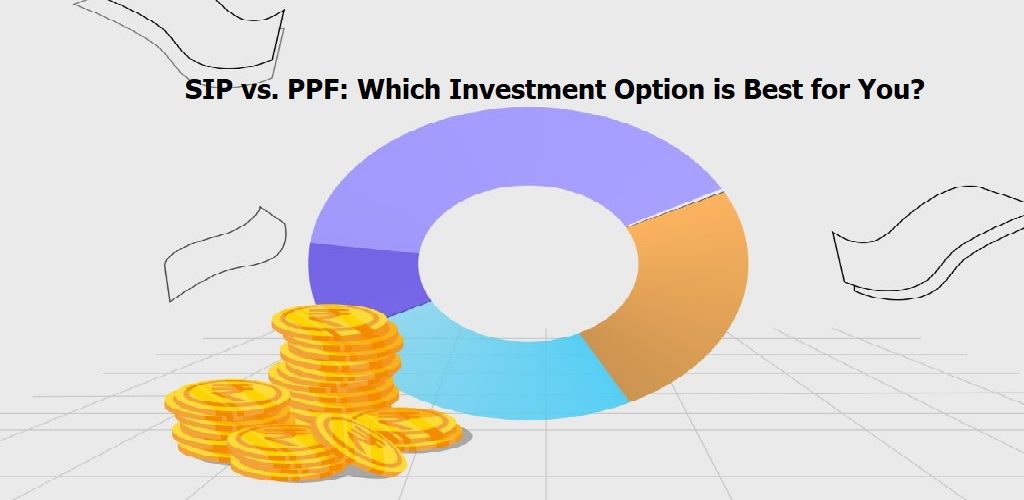Financial investments are crucial for building wealth and securing a stable financial future. Whether you are saving for retirement, a child’s education, or simply looking to grow your wealth, investing wisely can help you achieve your financial goals. This article explores the top reasons why you should make financial investments and how they can benefit your life.
1. Wealth Creation
One of the primary reasons for making financial investments is wealth creation. Unlike saving money in a regular savings account, investing can offer higher returns. By investing in assets like stocks, mutual funds, real estate, or bonds, you can grow your money over time. The power of compounding, where the returns on your investments start earning their own returns, can significantly increase your wealth.
Example: If you invest ₹1,00,000 in an equity mutual fund with an average annual return of 12%, in 10 years, your investment could grow to ₹3,10,585. This growth is much higher compared to keeping the same amount in a savings account with a 4% interest rate.
2. Beating Inflation
Inflation erodes the purchasing power of money over time. What you can buy with ₹100 today may not be the same a few years down the line. Investments, particularly in equities, tend to provide returns that outpace inflation. By investing, you ensure that your money grows faster than inflation, preserving your purchasing power.
Example: If the inflation rate is 6% and your savings account provides an interest rate of 4%, your real return is negative, meaning you are losing money in terms of purchasing power. However, an investment providing an 8% return will give you a positive real return of 2%.
3. Achieving Financial Goals
Investing helps you achieve various financial goals such as buying a house, funding your children’s education, or taking a dream vacation. Different goals have different time horizons and risk tolerances. By aligning your investments with your financial goals, you can systematically work towards achieving them.
Short-term goals: For goals like buying a car or going on a vacation within 3-5 years, you might consider low-risk investments like fixed deposits or debt mutual funds.
Long-term goals: For long-term goals like retirement or children’s education, equity mutual funds or stocks might be suitable due to their potential for higher returns.
4. Retirement Planning
Planning for retirement is one of the most important reasons to invest. Relying solely on pension schemes or government benefits might not be sufficient to maintain your standard of living post-retirement. By investing in retirement plans, such as the Public Provident Fund (PPF), National Pension System (NPS), or retirement-specific mutual funds, you can build a substantial corpus to ensure a comfortable retirement.
Example: Investing ₹5,000 monthly in a retirement fund with an annual return of 10% from the age of 30 can grow to over ₹1.14 crore by the time you are 60.
5. Tax Benefits
Certain investment options in India offer tax benefits under Section 80C, 80D, and other sections of the Income Tax Act. Investments in instruments like PPF, Employee Provident Fund (EPF), National Savings Certificate (NSC), and Equity-Linked Savings Schemes (ELSS) can help you save on taxes while also growing your wealth.
Example: Investments in ELSS mutual funds are eligible for tax deductions up to ₹1.5 lakh under Section 80C. Additionally, the long-term capital gains from these investments are taxed at a lower rate compared to regular income.
6. Diversification
Investing allows you to diversify your portfolio, spreading your risk across different asset classes. A diversified portfolio reduces the impact of a poor-performing asset and balances out the overall risk. This strategy ensures that the potential for returns is maximized while minimizing risk.
Example: By investing in a mix of equities, bonds, real estate, and gold, you can protect your portfolio from volatility in any single market. If the stock market is down, gains in bonds or gold can offset the losses.
7. Emergency Fund
Having an emergency fund is essential for financial security. Investments in liquid assets like liquid mutual funds or short-term debt funds can serve as an emergency fund. These funds can be accessed quickly in times of need, providing a financial cushion without having to liquidate long-term investments.
Example: Keeping six months’ worth of living expenses in a liquid mutual fund can ensure you have funds available for unexpected expenses like medical emergencies or job loss.
8. Building a Habit of Saving
Investing encourages a disciplined approach to saving and financial planning. Systematic Investment Plans (SIPs) in mutual funds are a great way to instill a habit of regular saving and investing. By setting aside a fixed amount every month for investments, you build a financial discipline that can benefit you in the long run.
Example: Starting a SIP of ₹3,000 per month in a mutual fund from the age of 25 can grow to a significant corpus by the time you are 50, fostering a habit of regular investing.
9. Financial Independence
Investing helps you achieve financial independence, where you have sufficient income to cover your living expenses without relying on a paycheck. Financial independence allows you to pursue your passions, start your own business, or retire early. The key to financial independence is starting early and investing wisely.
Example: By investing consistently from an early age, you can build a corpus that generates enough passive income to cover your living expenses, freeing you from financial worries.
10. Wealth Transfer to the Next Generation
Investments can serve as a means of wealth transfer to the next generation. By building a robust investment portfolio, you can ensure financial security for your children and grandchildren. Instruments like life insurance, mutual funds, and real estate can be passed on to your heirs, creating a legacy.
Example: Investments in long-term assets like real estate or stocks can appreciate significantly over time, providing a substantial inheritance for future generations.
Conclusion
Financial investments are not just about growing wealth; they are about securing your future, achieving financial goals, and ensuring peace of mind. The benefits of investing extend beyond mere returns, encompassing financial security, independence, and the ability to live a life free from financial worries. By understanding the importance of investing and starting early, you can leverage the power of compounding, beat inflation, and work towards a financially stable and prosperous future.
Investing requires careful planning and a clear understanding of your financial goals and risk tolerance. Consulting with a financial advisor can help tailor an investment strategy that aligns with your objectives and ensures long-term financial success. Remember, the best time to start investing was yesterday; the next best time is today. Take charge of your financial future by making informed investment decisions and reaping the rewards of a well-planned investment strategy.
Frequently Asked Questions
The main benefits of making financial investments include wealth creation, beating inflation, achieving financial goals, retirement planning, tax benefits, diversification, having an emergency fund, building a habit of saving, achieving financial independence, and wealth transfer to the next generation.
Investing in assets like equities or mutual funds can provide returns that outpace inflation, preserving and potentially increasing your purchasing power over time. This ensures that the real value of your money does not erode due to inflation.
For short-term financial goals, low-risk investment options such as fixed deposits, short-term debt mutual funds, and liquid funds are generally preferred as they offer stability and easy access to funds.
Investing early allows you to take advantage of the power of compounding, where your returns generate their own returns over time. This can significantly increase the value of your investments, providing a larger corpus for future financial goals.
In India, certain investments offer tax benefits under various sections of the Income Tax Act. For example, investments in PPF, EPF, NSC, and ELSS are eligible for deductions under Section 80C. Health insurance premiums can be deducted under Section 80D.
The right investment option depends on your financial goals, risk tolerance, and investment horizon. For long-term goals, equity-oriented investments might be suitable, whereas for short-term goals, debt instruments or fixed deposits may be better.
Diversification involves spreading your investments across various asset classes to reduce risk. A diversified portfolio can minimize the impact of poor performance in any single asset class, providing more stable overall returns.
An emergency fund ensures that you have readily accessible money to cover unexpected expenses, such as medical emergencies or job loss, without having to liquidate long-term investments or incur debt.
A financial advisor can help you understand your financial goals, risk tolerance, and investment options. They can provide personalized advice and create a tailored investment strategy to help you achieve your financial objectives.
By consistently investing and building a substantial portfolio, you can generate enough passive income to cover your living expenses. This financial independence allows you to retire early, pursue passions, or start your own business without relying on a regular paycheck.







